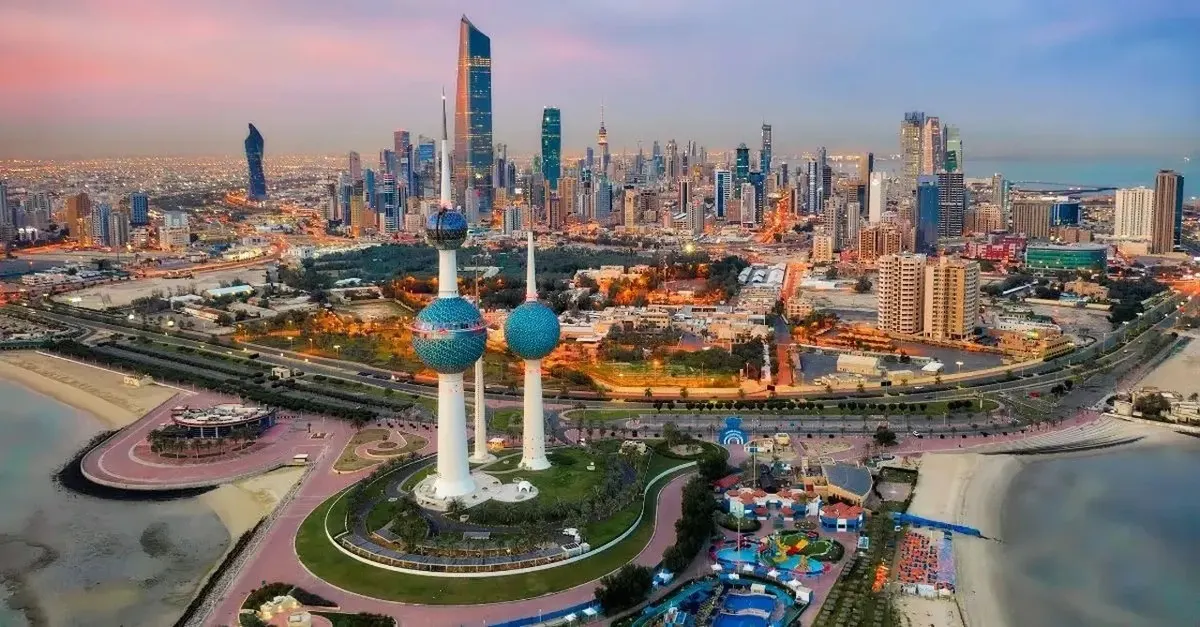27/09/2025
27/09/2025

KUWAIT CITY, Sept 27: Kuwait is positioning itself at the heart of the global tourism movement in 2025 through qualitative achievements and innovative national projects, aiming to solidify its status as a leading cultural and family destination amid a growing global and Gulf tourism boom.
Minister of Information and Culture and Minister of State for Youth Affairs Abdulrahman Al‑Mutairi told KUNA on Saturday, marking World Tourism Day, that Kuwait “possesses good tourism components” that qualify it to be a distinguished destination on the regional map, with the tourism experience developing in measured steps, combining authenticity and modernity.
Al‑Mutairi pointed out that Kuwait’s nomination last February to chair the United Nations World Tourism Organization’s (UNWTO) Regional Committee for the Middle East at its 51st meeting in Doha confirms that Kuwait is viewed as a trusted partner in growing the tourism sector, especially in the Middle East, which is considered a promising region for tourism.
“We are working in accordance with the directives of His Highness the Amir Sheikh Meshal Al‑Ahmad Al‑Jaber Al‑Sabah; His Highness the Crown Prince Sheikh Sabah Khaled Al‑Hamad Al‑Sabah; and His Highness the Prime Minister Sheikh Ahmad Abdullah Al‑Ahmad Al‑Sabah, to develop the infrastructure and tourism services,” he said, adding that this development aligns with visitor, citizen, and resident aspirations while highlighting Kuwait’s cultural and heritage identity as a fundamental pillar of the tourism experience.
He emphasized Kuwait’s commitment to diversifying recreational, cultural, and sporting events, underscoring its role as a cultural and humanitarian centre in the region. Al‑Mutairi also announced the forthcoming launch of the Visit Kuwait platform in November, which will facilitate visitor attraction through integrated electronic services. The platform will provide unique experiences in cooperation with the private sector across hospitality, restaurants, transportation, entertainment, and sports, besides serving investors—local and foreign—with a unified platform for communication and marketing using modern digital technologies, including the smart assistant “Rashid.”
Al‑Mutairi stated, “The future of tourism in Kuwait is promising. We have clear plans to attract tourism investment, expand partnerships with the private sector, promote domestic tourism, and provide an attractive environment for families and youth.” He described tourism as “not just an economic sector, but rather a bridge for cultural communication and exposure to Kuwait’s distinguished human and historical values. It is also a major and important economic tributary.”
Kuwait has secured for the first time in its history the presidency of UNWTO’s Regional Committee for the Middle East, reflecting regional confidence in its growing role in shaping future tourism. The presidency, granted at the 51st committee meeting in Doha, gives Kuwait a renewable two‑year term during which it will develop regional tourism policies and produce international recommendations for presentation in UNWTO’s Executive Council and General Assembly.
Since the start of 2025, Kuwait has seen a renewed tourism renaissance, blending its rich cultural identity with openness to modern experiences. Efforts by the government have boosted Kuwait’s profile as a cultural and family destination in the Gulf, with increased momentum in cultural, artistic, and sporting events. The upcoming Visit Kuwait platform launch will further enhance Kuwait’s tourism image and act as a unified window for both public and private sector events.
Regionally, Gulf countries are experiencing similar tourism growth. The UNWTO opened its Middle East regional office in Riyadh in May 2021 to promote sustainable tourism, develop sector capabilities, and reinforce regional and international partnerships. Riyadh hosted World Tourism Day in 2023 under the theme “Tourism and Green Investment,” and this month held the first regional workshop on medical tourism in the Middle East with over 30 member‑state representatives. Also launched is the “Tourism Law Observatory” in Saudi Arabia, aiming to support and unify legal and regulatory frameworks, issue recommendations, and organize related events.
Gulf efforts are further signified by upcoming leadership changes: Emirati businesswoman Sheikha Al Nowais is set to assume the post of UNWTO Secretary‑General in early 2026, becoming the first woman to hold the position since the organization’s founding fifty years ago.
Data for the first half of 2025 show international tourist arrivals in the Middle East exceeded pre‑COVID‑19 levels. Comparisons with the first half of 2019 indicate a 29 percent growth overall, with Qatar recording a 150 percent increase, Bahrain 75 percent, Saudi Arabia 53 percent, Jordan 34 percent, Oman 9 percent, and Egypt 40 percent growth. The Middle East was the first region globally to surpass pre‑pandemic tourism figures in 2023, reflecting a strong recovery and growing leadership in innovative tourism.
According to UNWTO, global international tourist arrivals between January and June of this year reached approximately 690 million—a 5 percent increase over 2024 and 4 percent above 2019—despite challenges including rising travel costs, inflation in tourism, geopolitical tensions, tariffs, and travel restrictions. Travel demand is expected to remain robust, with projected growth in international arrivals of 3‑5 percent for 2025.
UNWTO, headquartered in Madrid, comprises 160 member states, six associate members, and over 500 affiliated members—including private sector, educational, and local tourism bodies—working to promote tourism as a key driver of economic growth, sustainable development, and cultural exchange.


